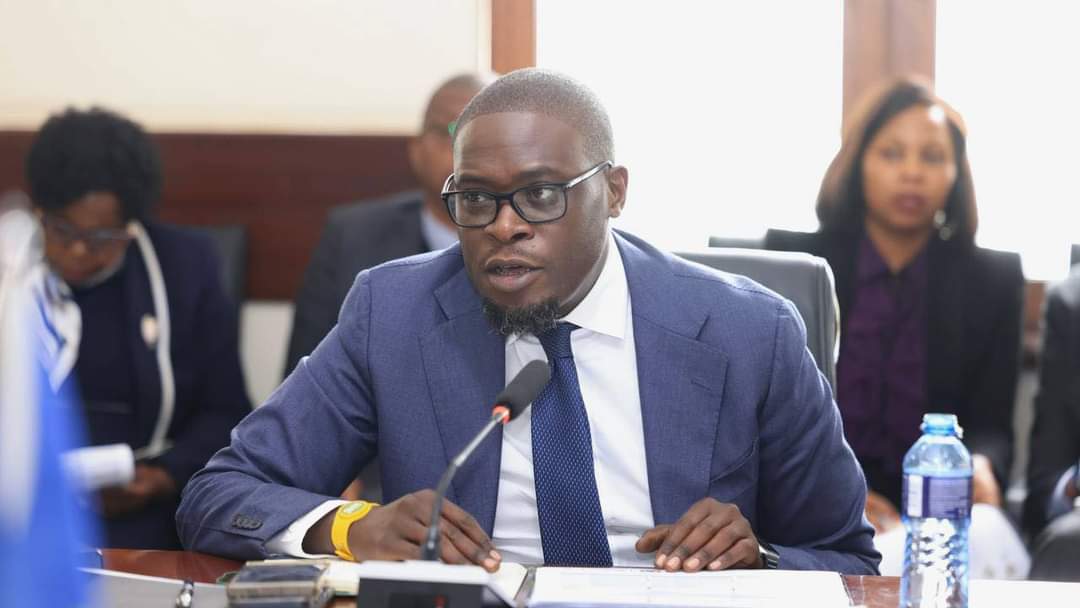A Nairobi County employee has been exposed for using a Fake KCSE Certificate to fraudulently earn Ksh7.5 million in salaries.
The suspect, who worked at Nairobi City Water and Sewerage Company Limited (NCWSC), forged her way into multiple positions over a decade. While she now faces charges in court, the scandal exposes a deeper rot within Nairobi’s leadership.
Governor Johnson Sakaja himself has faced serious questions over the authenticity of his own academic papers, making this case another sign that corruption starts at the very top.

Fake KCSE Certificate Scandal Shakes Nairobi County
The arrest of a Nairobi Water employee over a Fake KCSE Certificate has sent shockwaves through City Hall. The suspect, who worked as a revenue collection assistant, technician and marketing assistant, was charged before the Milimani Anti-Corruption Court with forgery, uttering false documents, and fraudulent acquisition of public property.
Prosecutors revealed that she pocketed over Ksh7.5 million in salaries between 2013 and 2023 — money she would never have earned without the forged papers. Investigations show that she presented a KCSE certificate with a fake name and a claimed mean grade of C+. The document was later confirmed by the Kenya National Examinations Council (KNEC) to be fraudulent.
On September 18, 2017, she allegedly submitted the fake papers to Nairobi Water’s human resource office. Despite the forgery, she was promoted into better-paying positions.
She pleaded not guilty before Principal Magistrate Charles Ondieki and was released on Ksh500,000 bond. The case will be mentioned on September 3. But this case is only the tip of the iceberg.
Sakaja’s Academic Papers Under the Microscope
Governor Johnson Sakaja has repeatedly faced questions over his academic credentials. During the 2022 general election, challenges were raised about whether he legitimately obtained his degree from Team University in Uganda.
Although he was cleared by the Independent Electoral and Boundaries Commission (IEBC), doubts linger. Critics argue that if the head of Nairobi County himself cannot convincingly defend his papers, then it is no surprise his administration is filled with officials using Fake KCSE Certificates and forged degrees.
The saying “a fish rots from the head” perfectly describes the Nairobi scenario. Sakaja’s academic saga set the tone for a county government where honesty is optional and fraud is normalized.
Fake Certificates a Wider Kenyan Crisis
The Nairobi Water employee’s case mirrors a larger trend. In June 2025, five public servants — including an IEBC official—were arrested for using fake certificates to secure jobs.
Across ministries, parastatals, and county governments, forged academic papers are not the exception but the norm. Each fake paper translates into millions of shillings stolen from taxpayers. Honest Kenyans are locked out of jobs, while fraudsters enrich themselves with fake qualifications.
In Nairobi, the problem runs deeper. Dozens of county staff are rumored to have questionable papers. Yet few cases ever reach court, and prosecutions often collapse due to weak investigations or political interference.
This culture of impunity thrives because those at the top benefit from it. When leaders’ own documents are under suspicion, they cannot enforce integrity among their staff.
The Cost of Fake KCSE Certificates to Nairobi Residents
For Nairobi residents, this rot is not just about fake papers—it translates into poor services, dirty water, and neglected infrastructure.
At Nairobi Water, fraudulent employees drain millions that should be fixing pipes and improving supply. In City Hall, ghost workers and paper fraud eat into development funds, leaving citizens to suffer under broken systems.
The Ksh7.5 million stolen through one Fake KCSE Certificate is only a fraction of the billions siphoned through county corruption every year.
Unless the rot is cut from the head, Nairobians will continue paying for leaders and staff who cannot even prove they passed their exams.











































